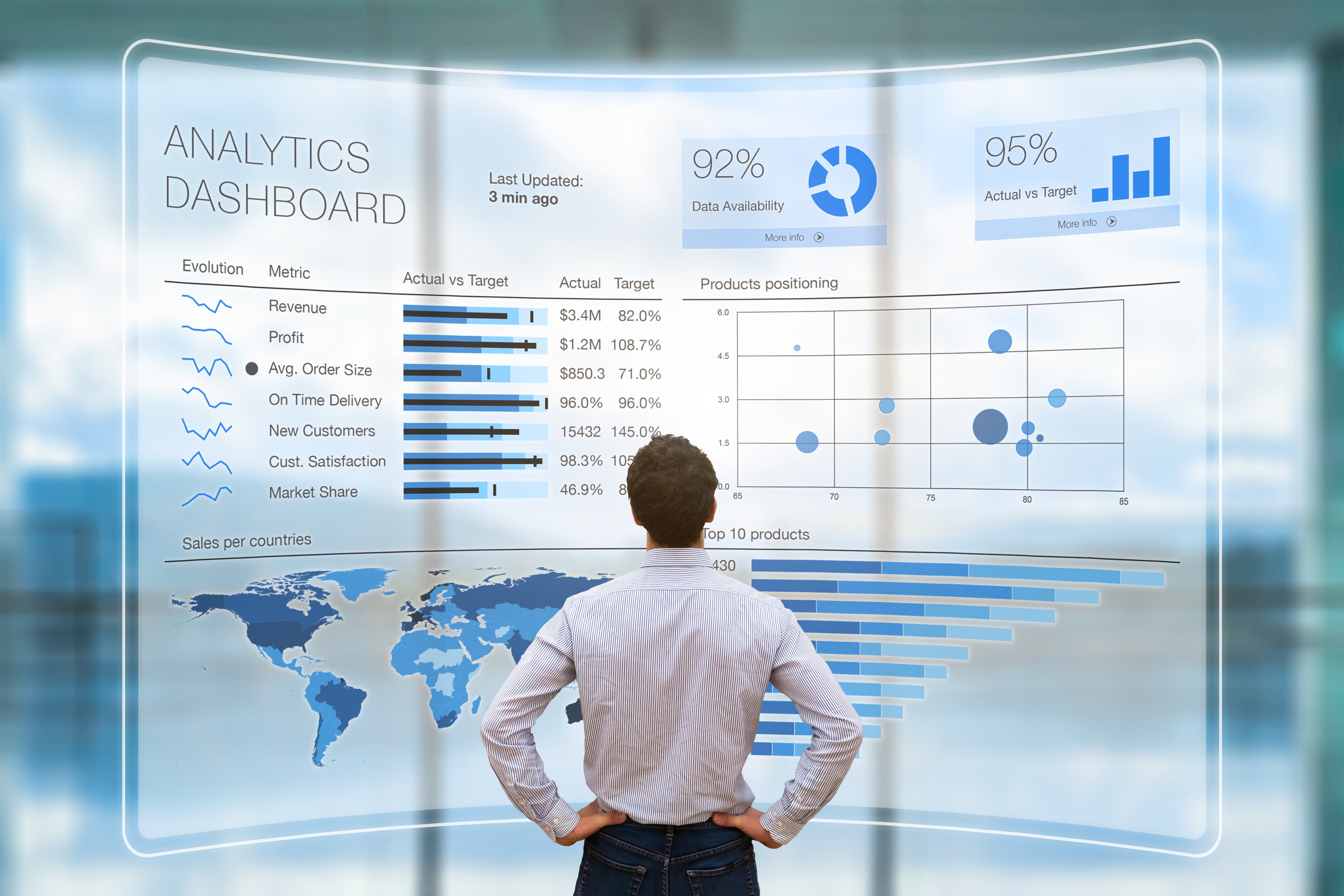4 Types of Data Analytics for Business Wins

In today's fast-changing world, data has become a precious resource for businesses looking to gain insights and make informed decisions. However, dealing with large amounts of data can be daunting, especially when it can have a huge impact on a company's success in the long run.
Data Analytics: The Solution to Business Challenges
That is where data analytics comes in. Popular analytics tools like Tableau and Power BI are widely used to create interactive visualisations and reports that present data in a way that makes sense.
Artificial intelligence and machine learning techniques can also be applied to extract insights from data and automate certain tasks, while data science is crucial to analyse data and model complex data sets. By enhancing marketing strategies with data visualisation, businesses can gain a better understanding of customer behaviour and preferences.
4 Types of Data Analytics: A Closer Look
There are four main types of data analytics: descriptive, diagnostic, predictive, and prescriptive. Let's take a closer look at each one to see how they can help drive business success.
Descriptive Analytics: Summarising Historical Data
When it comes to data analytics, descriptive analytics is the foundation upon which everything else is built. Its main aim is to summarise historical data and shed light on what has happened in the past.
Businesses can use it to get a quick snapshot of their performance at a specific point in time. For instance, a company can use descriptive analytics to track website traffic or social media engagement over time. With the insights gained from descriptive analysis, businesses can make informed decisions about future strategies and allocate resources accordingly. Plus, this kind of analysis can help identify trends that might be emerging, giving companies a competitive edge in the marketplace.
Diagnostic Analytics: Identifying the Root Cause of Outcomes
Diagnostic analytics is the perfect tool for businesses to figure out the reasons behind specific events that happened in the past. It is used to mainly answer questions such as "Why did sales decline last quarter?". When it comes to examining data, diagnostic analytics is an essential step in identifying the root cause of a particular outcome.
By delving into the data, diagnostic analytics can help businesses determine the underlying causes of problems or successes. This kind of insight is valuable because it enables businesses to make better decisions on how to avoid repeating problems, or to build on previous successes. After all, if you know what caused a particular outcome, you can take steps to replicate or avoid it in the future.
Predictive Analytics: Forecasting Future Trends
Predictive analytics helps businesses anticipate what's going to happen in the future. It relies on historical data and statistical models to answer questions like "What will happen next?" and "What's likely to happen if we take a certain action?".
Businesses can use predictive analytics to forecast future performance and identify potential risks. By doing so, they'll be able to make better decisions and allocate resources more efficiently. For instance, predictive analysis can help a company predict sales figures for the next quarter, allowing them to adjust production levels or marketing strategies accordingly. With accurate predictions of future trends and outcomes, businesses will be able to make smarter decisions and stay ahead of the curve.
Prescriptive Analytics: Recommending Actions Based on Data
Prescriptive analytics involves recommending actions or decisions based on historical data, statistical models, and machine learning algorithms. This type of analytics is frequently used to provide answers to questions like "What should we do?" or "What is the best course of action?".
Prescriptive analytics can be used to make data-driven decisions as well as optimise operations. For instance, a company could use prescriptive analytics to optimise its supply chain or to recommend which products to promote to which customers while improving their efficiency and effectiveness.

Leveraging the Power of Data Analytics for Business Success
With the right type of analysis, businesses can leverage data to make better decisions, invest more wisely, improve internal processes, and increase their chances of success.
According to a 2022 report on a survey by global professional accounting body CPA Australia, companies in Singapore were the most likely in the Asia-Pacific region to use data analytics and visualisation, cybersecurity, and robotic process automation in the next 12 months,1 pointing to an increased demand for data analysts, especially those who are at the top of the data management and analysis game.
Keen to upskill quickly in this field? Schedule a call with our helpful Student Advisors today to learn more about our Graduate Certificate in Analytics (E-Learning) and take the first step towards being in demand.
References





